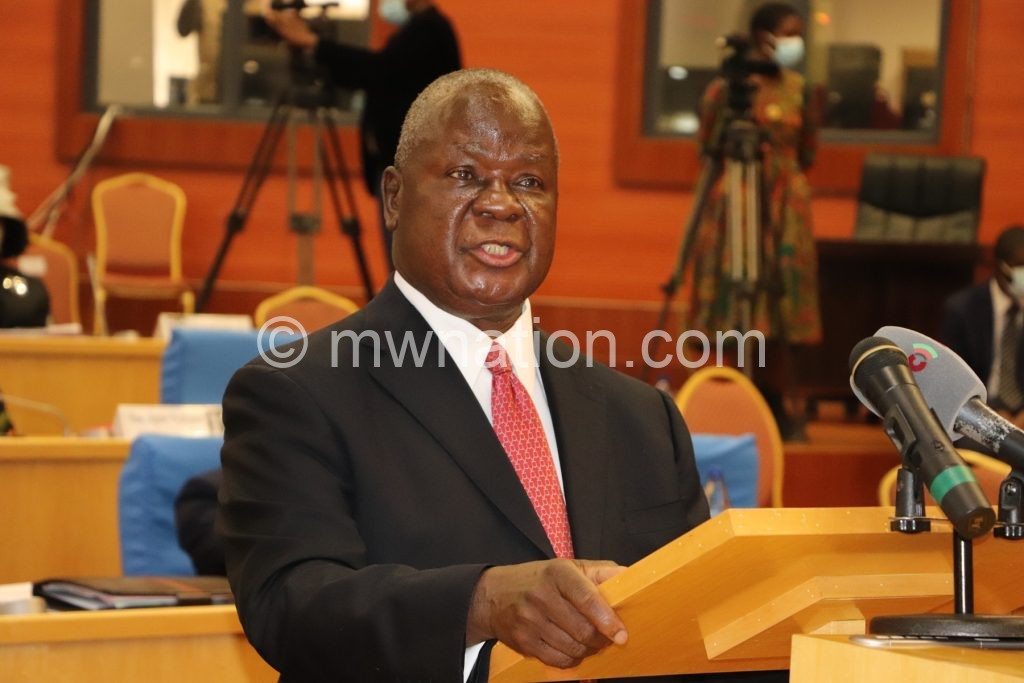Domestic debt jumps K1.9bn in a month
Malawi’s domestic debt stock climbed by K1.9 billion between September and October 2020, increasing central government debt stock position to K2.5 trillion, Treasury figures show.
Finance Minister Felix Mlusu confirmed the figures, saying one of the country’s major concerns is the high and rising public sector debt stock.

“As at end October 2020, central government domestic debt stock was recorded at K2.5 trillion, representing an increase of K1.9 billion from its September 2020 position,” he said.
At K2.5 trillion, the stock of domestic debt is equivalent to 37.3 percent of nominal gross domestic product (GDP) pegged at K8.1 trillion.
By June 2020, which was the end of the 2019/20 fiscal year, domestic debt stock was estimated at K2.37 trillion, or 57 percent of the total public debt at K4.2 trillion.
Based on our calculation, it means between June and October 2020, domestic debt alone has jumped by around K130 billion or six percent of the 2020/21 National Budget worth K2.2 trillion.
However, the pace at which domestic debt keeps climbing, should be a concern to Treasury as it means an increased obligation to repay the expensive domestic borrowing, which is also discouraged for its crowding out effect on the private sector.
In recent times, Treasury—already reeling from a thin fiscal space to manoeuvre its competing expenditure needs—has continued to rely heavily on long-term treasury notes when borrowing domestically.
But economic analysts, including the World Bank, have warned against such a policy thrust.
“As of October 2020, 86 percent of domestic debt was held in longer term treasury notes. However, high and increasing yields for treasury notes, ranging from 16 to 22 percent, will increase the debt servicing burden for domestic debt,” said the World Bank in its latest biannual analysis on Malawi, the Malawi Economic Monitor (MEM) which was launched virtually in Lilongwe last week.
Currently, Capital Hill is coughing a whopping K376 billion in interest payments on its debt stock.
The figure represents 5.3 percent of GDP, and an increase of 43.8 percent from the 2019/20 fiscal year preliminary outturn.
The breakdown is that foreign interest payments in the budget have been projected at K11.9 billion while domestic interest payments alone have been projected at K364.2 billion.
World Bank senor country economist (Malawi office) Patrick Hettinger said last week that Malawi is at high risk of overall debt distress due to high levels of domestic debt. Economics Association of Malawi president Lauryn Nyasulu maintained yesterday that it was imperative for Treasury to re-prioritise its expenditure, especially at a time when the country’s fiscal space has been squeezed.




